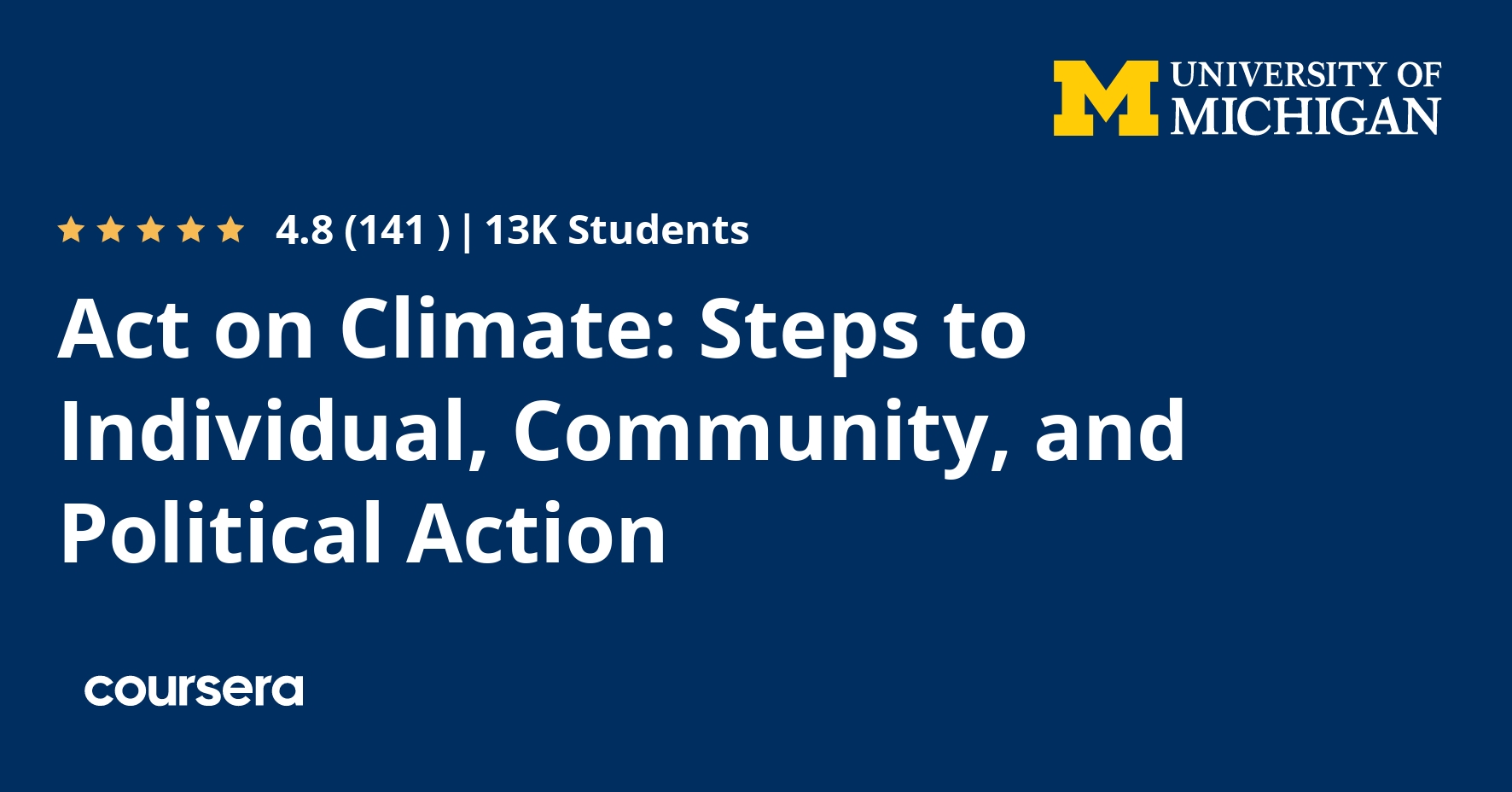Description
Are you concerned about climate change? Would you like to learn how to address and respond to this challenge? If so, this course is for you.
Act on Climate: Steps to Individual, Community, and Political Action is intended to help learners understand, address and respond to climate change as individuals and in partnership with their communities and political leaders. The course focuses on how to translate learning into action on climate change in the areas of food, energy, transportation and the built environment (cities). This course was co-developed and taught by Michaela Zint, Professor of Environmental Education and Communication, and University of Michigan Students. A range of academic climate change experts and professional leaders are featured.
As a result of completing this course, you will be able to:
1) Identify individual, community, and political actions you can engage in to effectively address and respond to climate change.
2) Describe how insights from the social sciences can be employed to create change at the individual, community, and political levels.
3) Feel empowered to continue to influence how you, your community, and political leaders address and respond to climate change.
Use #UMichActonClimate on social media to share what you’re doing and connect with other learners.
What you will learn
Introduction
As part of this introductory lesson, we will help you explore your motivations for taking this course, briefly introduce you to the current state of climate science and policy, and prepare you for taking actions on climate change throughout the course.
Food
Food is part of our everyday lives. From breakfast to dinner, we make choices that affect the planet. This week, you will hear from Chris about his journey toward vegetarianism, and you will learn from Dr. Sara Soderstrom about social movement theory and food businesses in Detroit, as well as actions that you can take to make food choices that can mitigate climate change.
Energy
We use energy in almost everything we do, but there are also many ways we can reduce emissions from our energy consumption. This week, you will hear from Benjamin about saving energy in cold winters and from Dr. Kaitlin Raimi about the theory of environmental peer persuasion. You will also learn several actions you can take to reduce energy consumption in your home, on your campus, and in your community.
Transportation
Transportation is part of everyday life. This week, you will hear from Stephanie about the collective impact of personal transportation decisions and from Brandon Schoettle about how driving decisions impact greenhouse gas emissions. You will also examine popular ride-hailing services, as well as actions that you can take to make transportation choices that can mitigate climate change, and ultimately you will learn to support a more resilient transportation system.




